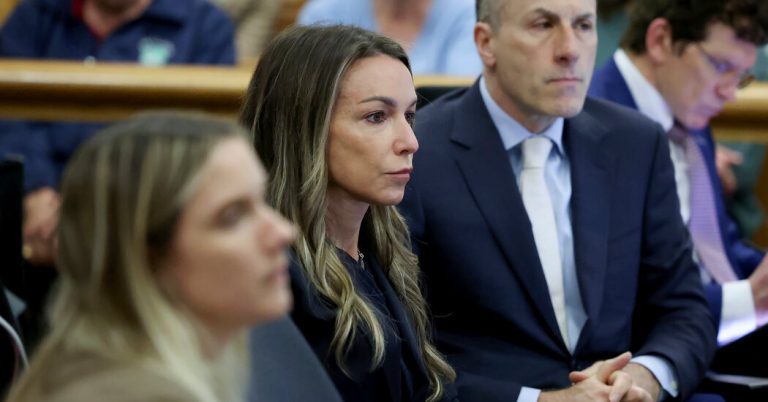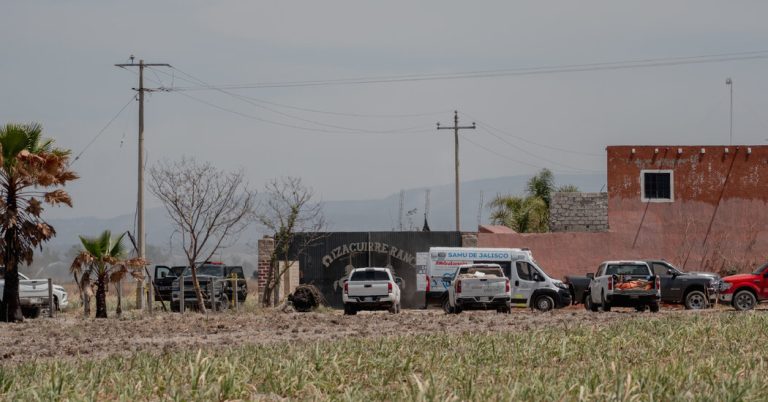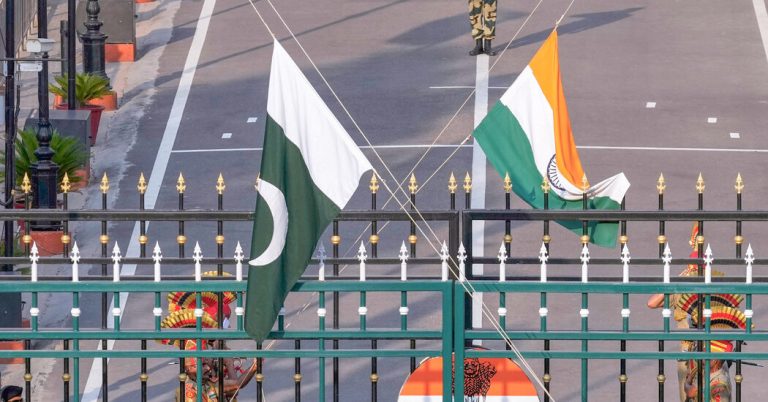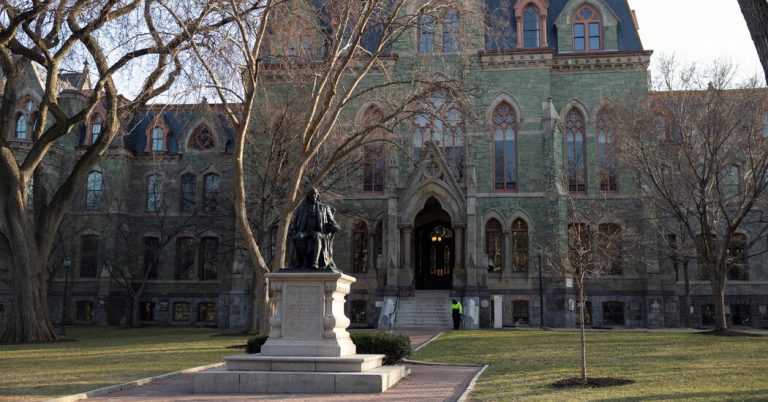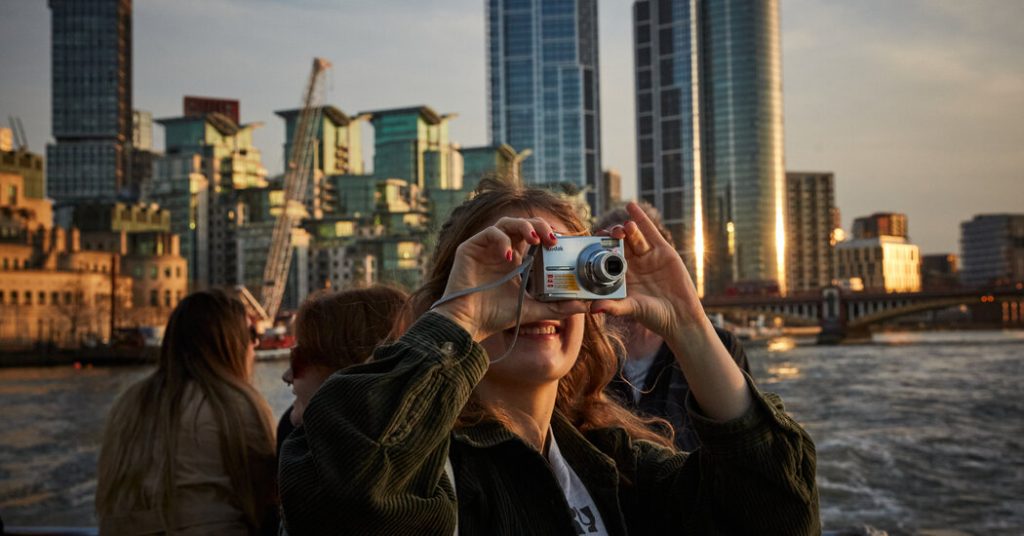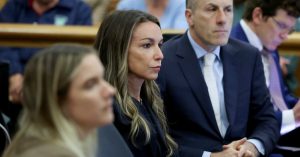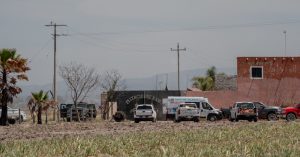KRAMATORSK, Ukraine — While Ukrainian rescue workers searched a bombed-out apartment building for survivors of a Russian attack, President Vladimir V. Putin sought to assure his citizens on Thursday, in a speech invoking his nation’s victory over Nazi Germany, that this was another virtuous war.
Efforts to pull people from the apartment strike in the city of Kramatorsk were interrupted by a new barrage of Russian rockets that hit a clinic, a school and other buildings, amid signs that a broader Russian offensive might be shaping up.
Some 300 miles to the east, Mr. Putin said at a broadcast event in Volgograd, “The legacy of generations, values and traditions — this is all what makes Russia different, what makes us strong and confident in ourselves, in our righteousness and in our victory.”
Mr. Putin’s attempt to put a veneer of nobility on an unprovoked invasion that has killed thousands of civilians and turned millions more into refugees was made in the Russian city once known as Stalingrad, on the 80th anniversary of a victory there against Nazi Germany that changed the course of World War II.
The number of Russian troops killed or wounded since Mr. Putin launched his invasion nearly a year ago is nearing 200,000, U.S. and other Western officials estimate, up from an estimate of over 100,000 in November, swelled by the intense but largely stalemated fighting in the Donbas region of eastern Ukraine. The staggering losses reflect both how poorly Russia has fared in what the Kremlin expected would be a quick and easy conquest, and Mr. Putin’s ability and determination to throw massive resources into the fight.
In Kramatorsk, in the Donbas, on Thursday, rescuers were digging through the rubble of a four-story building hit by rockets the night before, when a searing light raced across the sky. Firefighters, police officers and bystanders froze.
The State of the War
- A New Assault: Ukrainian officials have been bracing for weeks for a new Russian offensive. Now, they are warning that the campaign is underway, with the Kremlin seeking to reshape the battlefield and seize the momentum.
- In the East: Russian forces are ratcheting up pressure on the beleaguered city of Bakhmut, pouring in waves of fighters to break Ukraine’s resistance in a bloody campaign aimed at securing Moscow’s first significant battlefield victory in months.
- Mercenary Troops: Tens of thousands of Russian convicts have joined the Wagner Group to fight alongside the Kremlin’s decimated forces. Here is how they have fared.
- Military Aid: After weeks of tense negotiations, Germany and the United States announced they would send battle tanks to Ukraine. But the tanks alone won’t help turn the tide, and Kyiv has started to press Western officials on advanced weapons like long-range missiles and fighter jets.
Then came the booms, which sent people scattering in all directions for whatever cover they could find.
One woman sobbed. Another one cursed. “Fascists!” she said.
The overnight attack on Kramatorsk had killed at least three people and wounded more than a dozen. The Thursday barrage, which hit more than a dozen other buildings, local officials said, wounded another five.
The remains of people’s lives could be seen scattered amid the bricks and concrete blocks: a collection of colorful bras, a red volleyball, a teddy bear and a child’s red, blue and yellow play tent.
Among those hurt in the attack was a married couple. The husband sustained a serious concussion and the wife a broken arm, said a friend of theirs, Anna Olendarenko, 51.
“Horrible doesn’t even describe it,” she said. “You can’t wrap your head around it.”
In recent days, there have been claims by Kremlin backers of scattered Russian attacks and incremental gains along the Donbas front line. A prominent Moscow-aligned war blog called Rybar on Thursday described several Russian advances in villages near the city of Bakhmut, the area of most intense combat recently.
Visiting Kyiv on Thursday in a show of support for Ukraine and its president, Volodymyr Zelensky, Ursula von der Leyen, the chief of the European Union’s executive branch, announced that an international center for the prosecution of the “crime of aggression” in Ukraine would be set up in The Hague. The European Union last year made Ukraine a candidate for membership, a move that infuriated the Kremlin and had been considered highly unlikely before the war.
“Russia must be held accountable in court for its odious crimes,” Ms. von der Leyen said. “Prosecutors from Ukraine and the European Union are already working together. We are collecting evidence.”
In his speech in the former Stalingrad — now called Volgograd — Mr. Putin repeated his baseless claims that Moscow once again finds itself fighting Nazis, this time in Ukraine. Assuring Russians that victory was certain, he said nothing about the heavy casualties suffered by the Russian military in its unexpectedly difficult fight, let alone the many Ukrainians who have been killed, wounded or had their hometowns reduced to ruins.
Mr. Putin did, however, offer a warning to Germany, which the Kremlin had long viewed as Russia’s most important link to the West. He made his most direct remarks yet in response to Germany’s recent decision to provide Ukraine with Leopard 2 battle tanks, calling it part of “the aggression of the collective West.”
“We aren’t sending our tanks to their borders,” Mr. Putin said. “But we have the means to respond, and it won’t end with the use of armor. Everyone must understand this.”
Stalingrad holds totemic significance for Russians as a symbol of wartime suffering, sacrifice and heroism. In 1942 and 1943, the Soviets reversed the tide of Germany’s invasion in a 200-day battle there that cost hundreds of thousands of soldiers and civilians their lives.
Now, Russian soldiers are again shedding blood and Mr. Putin has worked hard to extend the halo of the “Great Patriotic War” of the 1940s over the invasion of today. He has gone so far as to describe it as defensive war.
After he landed in Volgograd on Thursday, Russian state media showed Mr. Putin laying red flowers at a Soviet commander’s grave below the giant Motherland Calls monument, which, at nearly 300 feet tall, is one of the world’s biggest statues. He was also shown kneeling before a wreath at a memorial flame nearby.
But after the strike on the apartment house in Kramatorsk, Mr. Zelensky cast the war squarely as a modern-day horror.
“This is not a repetition of history; this is the daily reality of our country,” Mr. Zelensky said in a statement after the attack late on Wednesday.
Kramatorsk has been the target of frequent rocket attacks by Russian forces since the war began in February, but in recent weeks, the strikes on the city center have intensified as Russian forces ramp up for an expected offensive to take the whole of Ukraine’s Donbas region. The city, a sprawling industrial hub that was home to about 200,000 people before the war, poses a serious impediment to Russia’s control of the region.
Kramatorsk also sits just 20 miles northwest of a more immediate Russian objective, the smaller city of Bakhmut, and is vital to Ukraine’s efforts to resupply its forces holding Bakhmut. Kremlin forces have fought for months to conquer Bakhmut, at a huge cost in Russian casualties, and its fall would be Moscow’s first significant military victory since the summer.
Both sides, their forces slowed by winter conditions, are expected to attempt major offensives in the coming weeks. But Mr. Zelensky has said that the increasing artillery strikes in the east, coupled with a large Russian troop buildup in occupied parts of eastern Ukraine, suggest that the Russians may be beginning one now.
Addressing Ukrainians on Thursday night, Mr. Zelensky expressed confidence that his country would prevail — but acknowledged that the Russians could still inflict pain.
“Tactically,” he said, “they still have the resources to attempt offensive actions. They are looking for options to try to change the course of the war, and are trying to put the potential of all the territories they still control in the service of aggression.”
Michael Schwirtz reported from Kramatorsk, Ukraine, and Anton Troianovski from Berlin. Reporting was contributed by Eric Nagourney, Marc Santora, Matthew Mpoke Bigg, Shashank Bengali and Erin Mendell.


